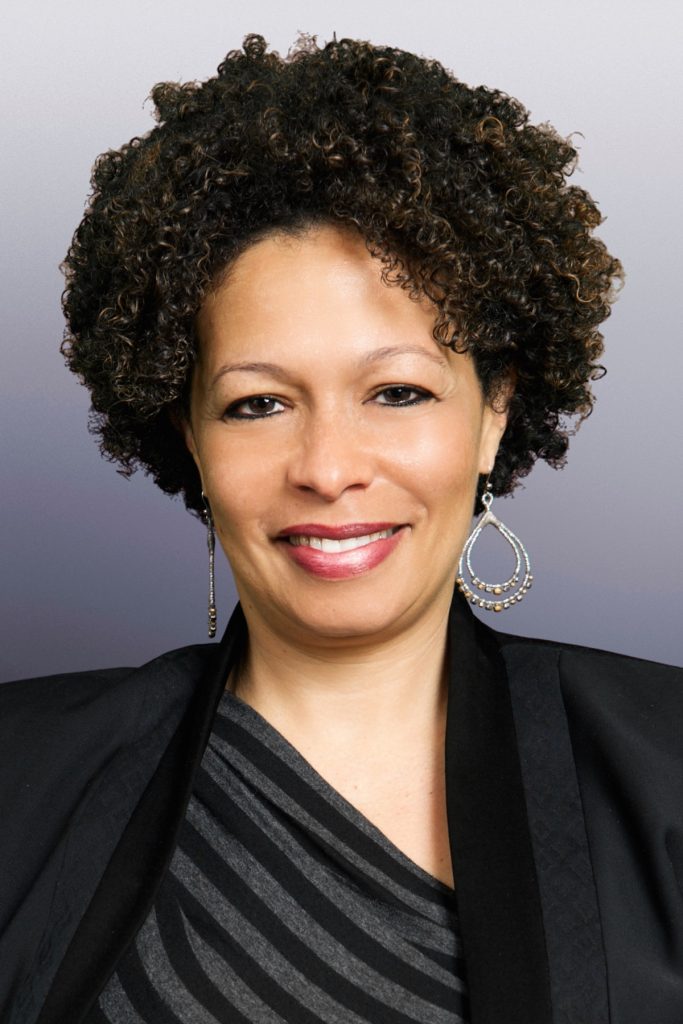
In conjunction with our ethics conference, “Journalism Ethics & Local News Now” (April 23, 2021), we are publishing case studies of each news organizations represented on our panel “Innovations in Local News.”
WURD Radio
Description
Founded in 2002, WURD Radio is the only African-American owned and operated talk radio station in Pennsylvania, and one of few in the country. It has become a multimedia company that has several platforms including: 900AM, 96.1FM, wurdradio.com, the WURD App, ecoWURD.com, wurdworks.com and Lively-HOOD. It was founded on the principle that communication and dialogue are central components to empowerment. WURD serves as the pulse of Philadelphia’s African-American community by providing information and solutions that educate, uplift and inspire others.
The Problem
There have always been and still are several gaps in the media landscape, but the most profound gap that WURD Radio seeks to fill, according to President and CEO Sara Lomax-Reese, is for African Americans to be able to tell their own stories from their own perspective and creating a space where Black people can speak and be heard in their own voice. WURD Radio is exceptionally powerful because in its two-way talk radio format, it’s able to collectively wrestle with big problems as a community. A lot of people tune into WURD, making it a real opportunity for different views and perspectives to be heard.
In a world where opportunity is seen as “top-down,” WURD Radio provides access to opportunities and real leadership in the media space. It acts as a training ground for people to come right out of college and learn, or to come at an intermediate point in their career and advance. WURD Radio proudly looks at the whole person and not just “at the boxes that need to be checked,” making the organization flexible and patient in preparing people for jobs in media.

Innovations
WURD Radio’s main innovation is to serve Philadelphia’s African-American community and beyond by providing information and solutions that educate and boost the community. The team creates product offerings that attract new and different audiences, and they test and learn to better serve the community. WURD Radio has also been successful in securing grants, which has allowed the company to grow.
The newsroom creates content for radio, television, video streams and social media platforms. They are also an environmentally conscious media outlet, with EcoWURD hosting weekly segments on environmental justice, Earth Day special programming and an Environmental Justice Summit hosted annually on Indigenous People’s Day to explore topics at the intersection of Black and Indigenous rights, income, and the environment and to discuss climate change, land reclamation and water quality in the Philadelphia area.
WURD Radio also has a jobs and workforce development initiative called Lively-Hood, which is designed to address high poverty and unemployment rates in Philadelphia’s Black community. This initiative uses its platforms to connect Philadelphians to jobs, career readiness information and entrepreneurial resources.
WURD Radio is also an inaugural member in the new BIPOC network called URL Media, which stands for Uplift, Respect and Love. URL is a network of high performing Black and Brown owned media organizations that can share content and revenues with each other. Its purpose is to amplify and aggregate content as a community. This venture is in partnership with other news organizations in the country, and Lomax-Reese pointed out that a large part of their business model has been partnerships. “It’s not anyone, but everyone,” Lomax-Reese said.
Insights
Overall, Lomax-Reese believes that WURD Radio has been successful. She is proud of the fact that WURD has always been “half a step ahead of each growth spurt,” especially with multimedia platforms. For example, in 2020 WURD Radio launched a podcast series called OnWURD 2020 in Black, which is a four-part podcast retrospective of big issues that WURD encountered in 2020 as a news station. It discusses independent Black media, COVID-19, racial justice uprisings and the 2020 election while documenting their work.
WURD Radio has also faced challenges along the way. “How you start matters,” Lomax-Reese said. She discussed how each business owner should be properly capitalized at the outset of a business launch, and that each business owner needs to learn to build and grow organically, which isn’t easy.
WURD Radio was purchased by Lomax-Reese’s father, Dr. Walter P. Lomax Jr., in 2002. Over the years, the station had several leaders but struggled to develop a successful business model. In 2010, Lomax-Reese was asked by her family to take over the leadership of the organization to see if she could turn it around. She encountered many obstacles, one of them significant: convincing the corporate community to support a radio station that served a community they didn’t care about. Even though Philadelphia is almost 45% African American, there was very limited support from corporate and government stakeholders at that time. But in 2020, with the racial justice protests, the COVID-19 pandemic and the presidential election, WURD’s ability to reach and mobilize Philadelphia’s Black communities was undeniable, helping them turn a corner. Lomax-Reese is proud of the progress that has been made, but knows that there is still much work to be done.
Top Projects
Heard on WURD: Nick Taliaferro Interviews Dr. Ashish Jha
The Spirit of a King: Living the Legacy of the Activist Clergyperson
#BlackWURDS Book Club With Nick Taliaferro
Additional Info
URL Media launches to help sustain “high-performing Black and brown media organizations” (Nieman Lab)
WURD Radio on Violence (Lenfest Institute)
